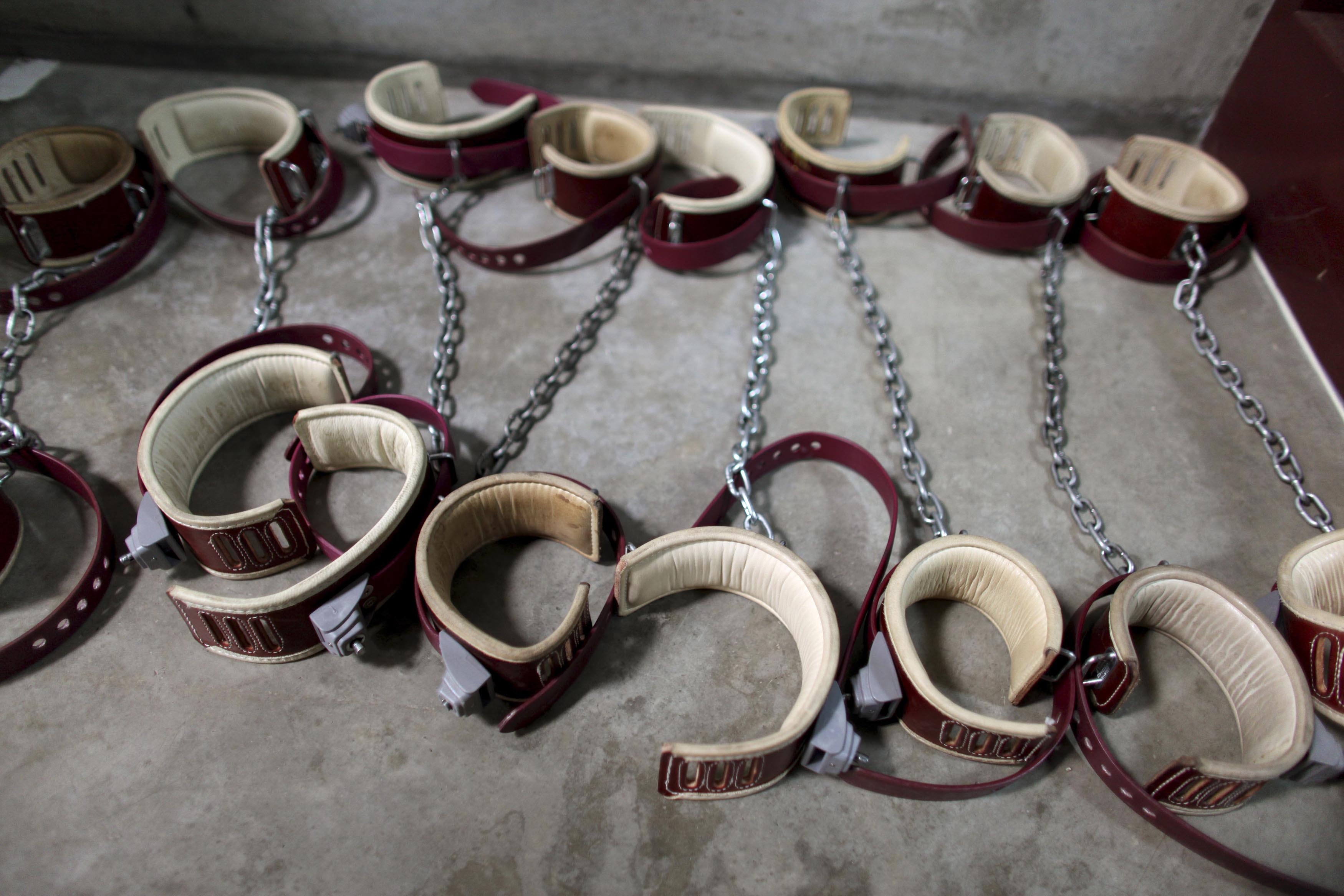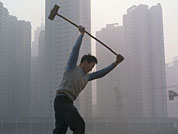Chinese may slap Swiss wrists over Uighur affair

Experts have played down fears that Swiss trade with China will be hit hard by Switzerland’s decision to give asylum to two Uighurs from China’s Xinjiang province.
The Chinese foreign ministry said on Thursday that the Swiss government’s acceptance of the two men from the United States prison in Guantanamo “will certainly affect Sino-Swiss relations”.
“It will impact trade relations, but not significantly,” said Nicolas Musy of the Swiss Center Shanghai, a non-profit organisation that assists small- and medium-sized companies interested in entering the Chinese market.
Musy told swissinfo.ch it was too early to tell if China would follow up its threat. A sign that Beijing might not act is the fact that the Chinese media has made little fuss of Switzerland’s announcement on Wednesday that it would give refuge to the Uighurs.
The Chinese government claims the two Uighurs are members of a terrorist organisation active in Xinjiang province, even though the United States has cleared them of any connection.
As far as the battered Swiss economy is concerned, Switzerland can only hope the political row will not have a significant impact on trade.
Ticking ties
China is the fourth largest market for Swiss exports, after the European Union, US and Japan, and is even more important for the Swiss watch industry.
China together with Hong Kong accounts for a quarter of all watch exports. The key sector of the Swiss economy started to tick over again in the fourth quarter of 2009 thanks to a jump in sales to the Asian economic powerhouse.
And Switzerland is keen on increasing business with Beijing which is why it is testing the free trade waters. The first talks between the two sides on a free trade feasibility study took place in the Chinese capital last week. A spokesman for the Swiss economics ministry, Christophe Hans, told swissinfo.ch that the official goal to complete the study by the end of 2010 had not changed.
However Musy said he would not be surprised if this was one area of bilateral relations where China could express its displeasure. He believes Beijing will now be in no hurry to move ahead on free trade.
Saving grace
Likely to be watching developments closely are pharmaceutical giants, Novartis and Roche.
Even though sales to China only represent about three per cent of their global turnover, analyst Christophe Eggmann of bank Julius Bär says the two Basel-based companies look to China for higher-than-average growth.
“Established markets last year grew at 11 per cent while we had 19 per cent growth in emerging markets,” Eggmann told swissinfo.ch.
Indeed, Swiss pharmaceutical goods going to China jumped by 46 per cent from 2007 to 2008, and now account for more than eight per cent of all Swiss exports to the country.
The saving grace for companies like Roche, Eggmann added, is that China is unlikely to put any barriers in the way of imports of life-saving drugs such as cancer therapies.
swissinfo.ch and agencies
Since 2002, China has been Switzerland’s most important trading partner in Asia.
In 2008, Switzerland exported goods to China worth SFr6.1 billion ($5.7 billion), with imports from China amounting to SFr5 billion.
While exports to China quadrupled between 2000 and 2008, they were impacted by the global economic downturn and fell by more than 2% in 2009.
A Swiss Business Hub was opened in Beijing in 2002 to promote trade, and was followed by branches in Shanghai and Guangzhou.
On February 1, two days before Switzerland announced its decision to accept two Uighurs – despite China’s opposition – the Swiss Chinese Chamber of Commerce published a survey saying the Swiss business community in China was “highly optimistic” about the next five years.
According to the survey, two thirds of Swiss companies in China plan to increase their workforce this year by 15%, with half saying they would increase their investments.
The number one concern of the Swiss firms is no longer the global economic slowdown, which ranked highest last year, but “finding and hiring suitable talent”. In second and third position are uncertainties and problems to meet new and changing regulations in China.

In compliance with the JTI standards
More: SWI swissinfo.ch certified by the Journalism Trust Initiative




You can find an overview of ongoing debates with our journalists here. Please join us!
If you want to start a conversation about a topic raised in this article or want to report factual errors, email us at english@swissinfo.ch.